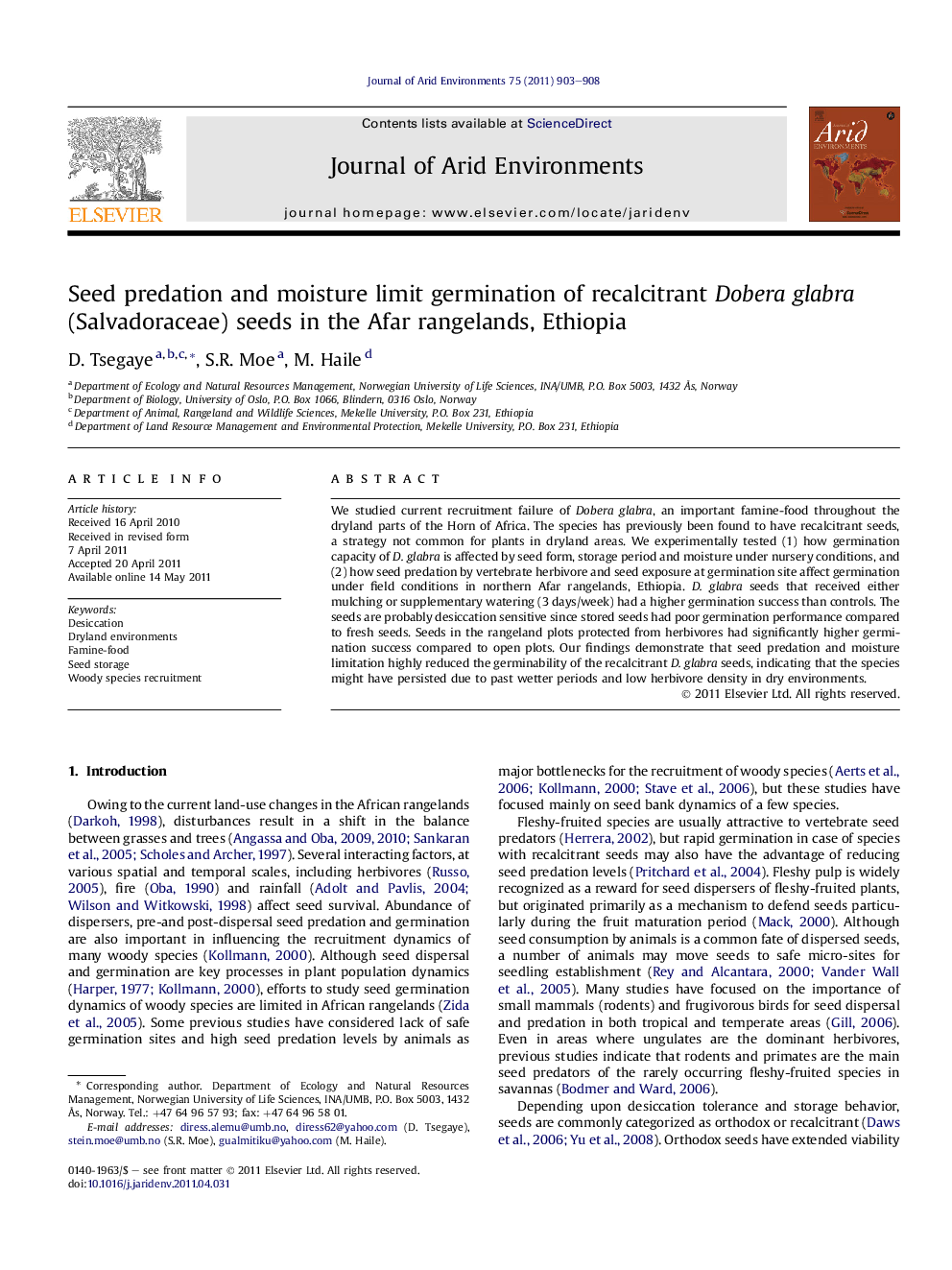| Article ID | Journal | Published Year | Pages | File Type |
|---|---|---|---|---|
| 4393644 | Journal of Arid Environments | 2011 | 6 Pages |
We studied current recruitment failure of Dobera glabra, an important famine-food throughout the dryland parts of the Horn of Africa. The species has previously been found to have recalcitrant seeds, a strategy not common for plants in dryland areas. We experimentally tested (1) how germination capacity of D. glabra is affected by seed form, storage period and moisture under nursery conditions, and (2) how seed predation by vertebrate herbivore and seed exposure at germination site affect germination under field conditions in northern Afar rangelands, Ethiopia. D. glabra seeds that received either mulching or supplementary watering (3 days/week) had a higher germination success than controls. The seeds are probably desiccation sensitive since stored seeds had poor germination performance compared to fresh seeds. Seeds in the rangeland plots protected from herbivores had significantly higher germination success compared to open plots. Our findings demonstrate that seed predation and moisture limitation highly reduced the germinability of the recalcitrant D. glabra seeds, indicating that the species might have persisted due to past wetter periods and low herbivore density in dry environments.
► We studied recruitment of Dobera glabra, an important famine-food in eastern Ethiopia. ► The species has recalcitrant seeds, a strategy not common for plants in drylands. ► D. glabra might have persisted due to past wetter periods and low herbivore density. ► D. glabra is threatened due to increasing drier climate and herbivore pressure.
